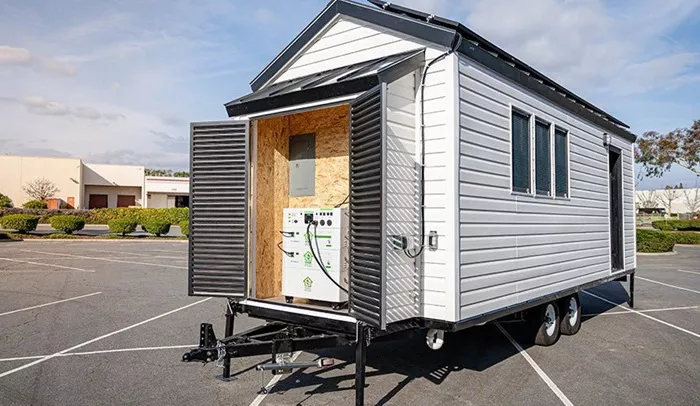A home generator is a valuable investment for homeowners who want to ensure uninterrupted power during outages. Whether you live in an area prone to storms or simply want backup power for emergencies, understanding the cost of a home generator is essential. This article explores different types of generators, their prices, installation expenses, and factors that influence the total cost.
Types of Home Generators & Their Costs
Home generators come in different types, each with varying price ranges. Below are the most common options:
Portable Generators
Portable generators are the most affordable option, typically ranging from 500 to 3,000. These units run on gasoline, propane, or diesel and are ideal for short-term power needs.
Pros: Lower upfront cost, easy to move, no permanent installation required.
Cons: Limited power output, require manual operation, and must be used outdoors to prevent carbon monoxide poisoning.
Inverter Generators
Inverter generators are a quieter, more efficient version of portable generators, costing between 1,000 and 4,000. They produce clean energy, making them safe for sensitive electronics.
Pros: Fuel-efficient, lightweight, low noise levels.
Cons: Higher cost than standard portable generators, limited to mid-range power needs.
Standby (Whole-House) Generators
Standby generators are permanently installed and automatically turn on during a power outage. Prices range from 5,000 to 15,000+, depending on size and brand.
Pros: Automatic operation, high power output (can run an entire home), durable.
Cons: Expensive upfront cost, requires professional installation, needs a fuel source (natural gas or propane).
Factors Affecting the Cost of a Home Generator
Several factors influence the final price of a home generator:
Power Output (Wattage)
The generator’s size determines how much it can power. Small portable units (3,000–5,000 watts) are cheaper, while whole-house systems (20,000+ watts) cost significantly more.
Fuel Type
Gasoline: Cheaper but less efficient.
Propane/Natural Gas: More stable fuel supply but requires a gas line.
Diesel: High efficiency but noisy and expensive.
Installation Costs
Standby generators require professional installation, which can add 2,000 to 5,000 to the total cost. Portable generators don’t need installation but may require additional wiring for safe use.
Brand and Quality
Well-known brands like Generac, Kohler, and Honda offer reliable generators but at a premium price. Cheaper brands may save money upfront but could have higher maintenance costs.
Additional Features
Automatic Transfer Switch (ATS): Essential for standby generators, adding 500–1,500.
Noise Reduction Technology: Increases cost but improves comfort.
Remote Monitoring: Allows control via smartphone, adding 200–500.
Ongoing Costs of Owning a Generator
Beyond the initial purchase, homeowners should consider:
Fuel Expenses: Gasoline and propane costs add up over time.
Maintenance: Annual servicing costs 200–600 for standby generators.
Repairs: Parts replacement can range from 100 to 1,000+ depending on the issue.
Is a Home Generator Worth the Cost?
A generator is a significant investment, but the benefits include:
- Uninterrupted power during outages.
- Protection for appliances like refrigerators and medical equipment.
- Increased home value for properties in outage-prone areas.
For those in regions with frequent power disruptions, a standby generator may justify its cost. Portable models are better for occasional use.
Conclusion
The cost of a home generator varies widely based on type, size, and features. Portable generators are budget-friendly, while standby systems offer full-home backup at a higher price. By assessing power needs, fuel options, and installation requirements, homeowners can choose the best generator for their budget and lifestyle.
Investing in a generator ensures peace of mind, keeping your home powered when the grid fails. Whether you opt for a portable unit or a whole-house system, understanding the costs helps make an informed decision.

